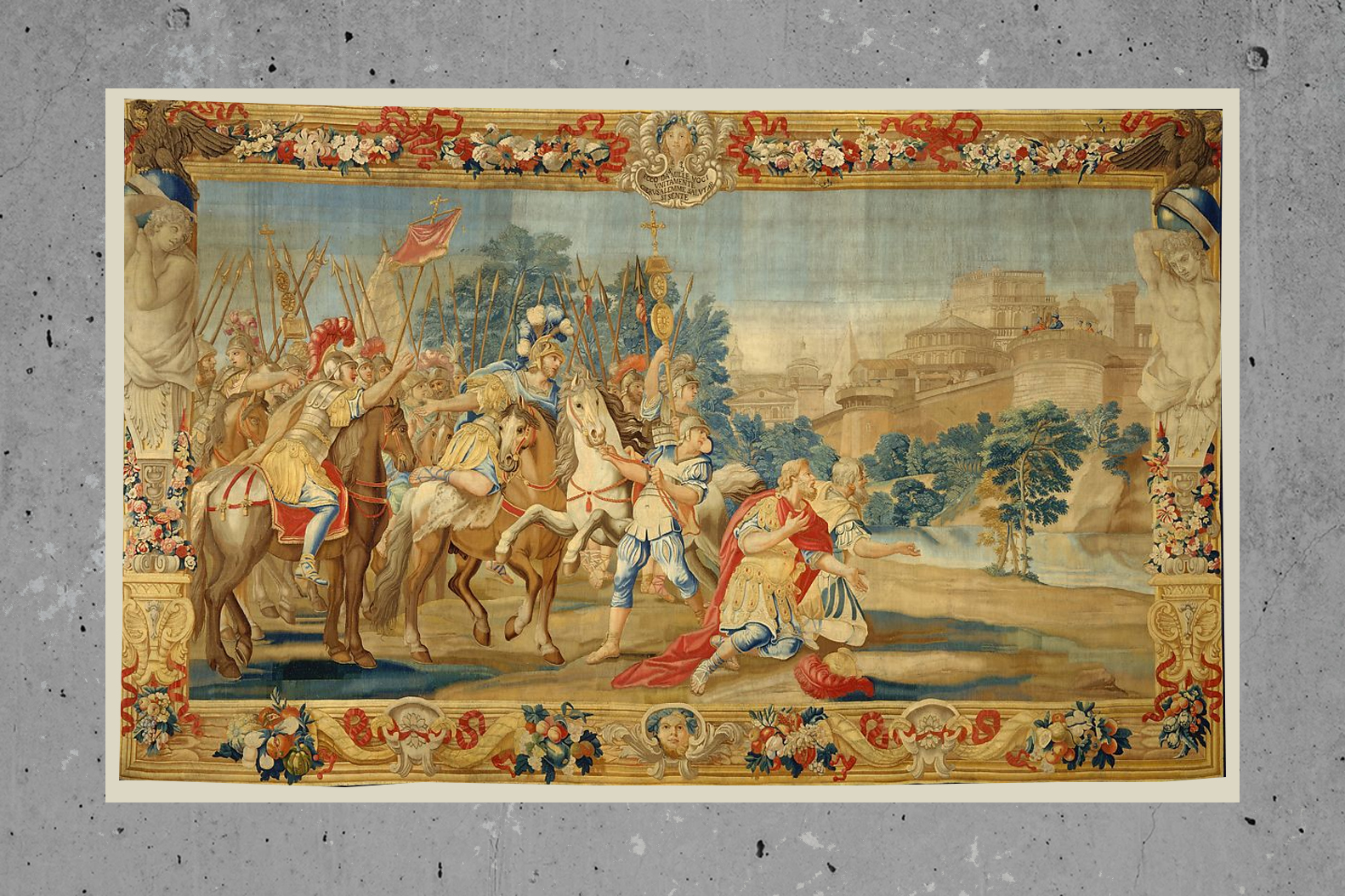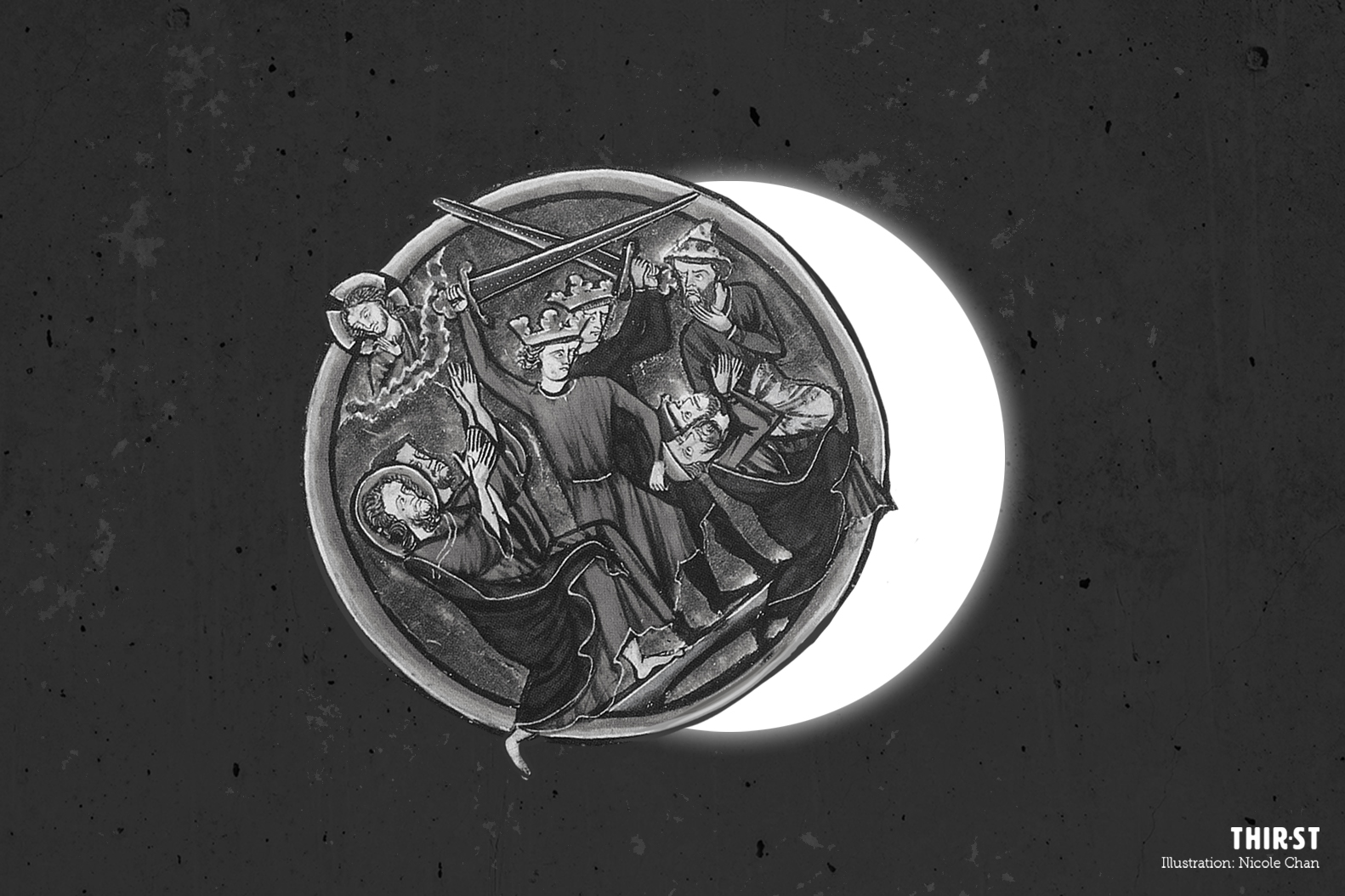On a hot summer’s day in June, a young Jewish girl watches with fear and trepidation as the raging mob camped outside of Jerusalem’s walls begins its final assault on the city’s northern front. By the end of the day, the Tower of David has been breached and the slaughter begins.
The army cuts through the inhabitants of the city with such brutal ferocity that, in the words of one witness: “If you had been there your feet would have been stained up to the ankles with the blood of the slain.”
This army has a special name. They call themselves many things — pilgrims, liberators, exercitus Dei (army of God) — but they are best known as the Crusaders.
I was first introduced to them in my second year of university, when I took a module on the Crusades. The scene described above is of the conquest of Jerusalem at the end of the First Crusade in 1099, which sparked a series of imitation holy wars that have since become a shorthand for Christian brutality and corruption.
The Crusades are far from being the only contentious blot on Christianity’s historical legacy. Religious violence did not end with the Middle Ages but morphed into the Inquisition, the Spanish conquest and conversion of the Americas, and finally, the less overtly sinister missionary efforts of the 19th and 20th centuries.
This last development is perhaps the most troubling for me.

I grew up viewing missions as a natural extension of outreach efforts at home, the ultimate fulfilment of God’s call to be His witnesses to the ends of the earth (Acts 1:8). In university, however, I was forced to confront the more complex history of early missions work.
Missionaries, I soon realised, served as some of the most prominent agents and staunch supporters of European imperialism.
The more I read about how missions were a form of cultural imperialism, the more muddled my attitude towards it became. After all, didn’t this go against everything modern sensibilities teach us about respecting indigenous agency?
Christianity’s sordid history is a testament to the magnitude of God’s mercy.
In seeing the big picture, warts and all, I have had to re-evaluate my reasons for choosing to believe in God. It has not been a comfortable process in the least, but it has strengthened my resolve and conviction.
In this piece, I reflect on the ways in which learning about Christianity’s unsavoury past has affected how I live out my faith in the present. Hopefully, it can be of some help to anyone wrestling with similarly conflicting emotions.
REALISE THE COMPLEXITY, LEARN FROM THE GOOD
The study of history sometimes feels like an inherently pessimistic undertaking. Most historians are cynics, and failures ultimately make for more compelling stories than triumphs.
But history is also a far more complex subject than modern social discourse often allows for. Its heroes are flawed and its villains multidimensional.
Take the 19th-century missionaries, for instance. Far from being driven by the unanimous belief in the justice of colonialism, many were deeply uncomfortable about the links that tied them to the imperial state and tried to distance themselves from it.
It would be unfair to dismiss the genuine humanitarianism that spurred many of them on, and the aid they brought to indigenous communities was evidently appreciated. Alongside the gospel, they gifted education, social welfare and medical help to the natives as well. It is this heart for the poor, sick and disadvantaged that we should not forget to emulate in modern missions.
It is also worth noting that the introduction of Christianity is not necessarily tantamount to the erasure of indigenous agency. In fact, local converts often took up the mantle from the foreign missionaries and subsequently played a prominent significant role in sharing the gospel with their neighbours.
While Christianity was wielded as a tool of oppression, it empowered and liberated many as well.
After all, Christianity isn’t just a religion for white people. It may have found its loudest expression in the West over the past millennium, but it ultimately has its roots in the East.
It is the story of a Middle Eastern Jew who came to save the entire world, and who promises salvation for anyone, regardless of race, language or background.
HISTORY POINTS TO A TIMELESS TRUTH
At the heart of Christianity is a wonderful truth that should not be obscured. If anything, Christianity’s sordid history is a testament to the magnitude of God’s mercy.
Christ’s love for his fallible flock has endured, despite our wilful disobedience and fatal misinterpretation of His Word.
And, in my opinion, there is an unparalleled sense of freedom in having the privilege to be redeemed by a God who loves unconditionally.
I am also learning not to let my faith remain shrouded in shame. Christians might be deeply flawed, but we serve a perfect God.
Jesus, the Son of God, fed the hungry, healed the sick and befriended the outcast. He didn’t come to limit but to liberate, to bring peace instead of persecution. This is a love that transcends the failings of man.
It is a truth too urgent and too wonderful to be shut out by its worldly legacy, however intertwined the two might be. It is a truth that has withstood all of time’s most challenging tests.
It is my hope that Christianity’s next 1,000 years will be less contentious, so that more people might come to share in this truth as well.

Christianity professes to be a religion of love, but this sentiment is not always reflected in the deeds of those who claim to follow Christ. It is hence no surprise that many are resentful or sceptical.
As Christians, we should remember that as ambassadors of the faith, we should be careful with how we conduct ourselves in the public sphere. Conviction and confidence are important, but let’s remember to temper our words with kindness too.
Personally, I have tried my best to understand such reservations held by my non-believing friends in order to approach faith-related discussions with the appropriate degree of sensitivity.
Rather than stubbornly unloading my beliefs on them, I have found it more productive to let them lead the conversation while I subtly guide them to see the love and forgiveness that is at the core of Christianity.
I can’t answer for the crimes of past practitioners of my faith, but I can at least ensure that I don’t follow in their footsteps.
- Are there any aspects of Christianity’s historical legacy that you struggle with?
- How well does your life reflect Christ?
- How can you be a better witness of the gospel message wherever you are?









